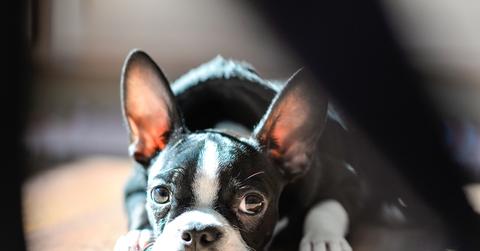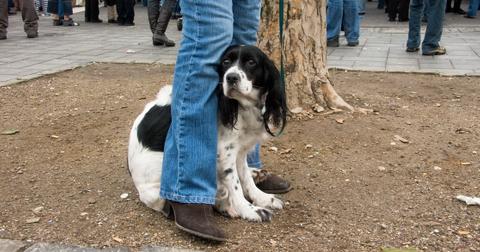Autism describes a human developmental condition, so when talking about dogs, it’s called something different.
Mar. 4 2024, Published 1:09 p.m. ET

Autism describes a spectrum of complex developmental conditions that can affect a person’s social and behavioral skills. Someone with autism usually receives a diagnosis as a child. However, there are many cases where people do not know they have autism until they are diagnosed in adulthood.
Article continues below advertisement

Article continues below advertisement
Can dogs have autism?
Dogs can have developmental disabilities comparable to human autism, known as canine dysfunctional behavior (CDB). According to Pet Check Urgent Care, the cause of CDB is unknown. However, many believe that dogs with CDB lack mirror neurons, which can affect their ability to learn from other dog’s behaviors and “mirror” them in social settings.
According to NaturVet, it’s important to note that the term autism refers to a human developmental condition and is only used to compare developmental disabilities that appear in dogs. So, in a technical sense, dogs cannot have human autism, but they can have CDB. CDB is something that dogs are born with, and the behaviors often start appearing when they are puppies.
Article continues below advertisement
Like autism, CDB can appear differently in every dog. However, some behavior patterns could indicate a potential diagnosis of CDB.
These include antisocial behavior among dogs and humans, difficulty processing sensory stimuli, obsessive-compulsive behaviors like licking, circling, hyperactivity and over-responding to stimuli, lethargy, and avoidance of certain environments.
Article continues below advertisement
With all that in mind, some of these behaviors are more common than others and don’t necessarily mean your dog has CDB. According to The Dog People by Rover, it’s always a good idea to talk to a vet before jumping to conclusions.
If your dog is diagnosed with CDB, your vet may recommend treatments such as medication, creating a safe and secure environment, exercise, diet changes, and overall positive reinforcement, per Pet Check Urgent Care.

Article continues below advertisement
Can cats have autism?
Cats cannot have autism like humans do, but they can experience atypical behaviors that could be compared to human autism.
According to The Treetop ABA Therapy, some signs of cats with developmental disabilities include difficulty adapting to new environments, anxiety around people and animals, and high reactivity and sensitivity to stimuli.
Similar to CDB in dogs, there are some recommendations for treating and supporting cats experiencing these behaviors. According to Above and Beyond Therapy, this could involve creating a predictable routine, using pheromone diffusers or toys to reduce stress and anxiety in an environment, and finding ways to socialize your cat while being aware of its sensitivities and triggers.
Article continues below advertisement
Diagnosing autism in animals can be more challenging because of obvious communication barriers and also because developmental conditions manifest in species in different ways. In addition, there is very little research on neurodivergence in animals such as cats, which makes it even harder to conclude what certain behaviors mean, per Above and Beyond Therapy.



